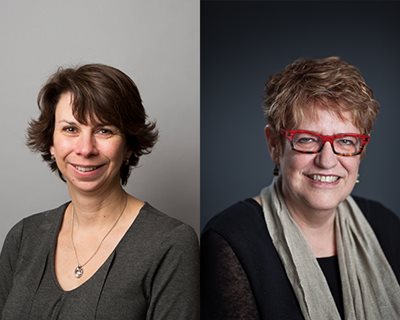June 22, 2018
There is no cure yet for dementia; but one day, a family doctor could prescribe a specific diet, an exercise regime, music or language lessons, or documentary discussion groups as treatments to ward off the disease.
Canadian researchers are recruiting older adults across Toronto and Montreal to explore the benefits of different types of brain training and lifestyle interventions for two clinical trials.
Baycrest researchers are playing a leading role in these studies, which are part of the work being done by the Canadian Consortium on Neurodegeneration in Aging (CCNA), a nation-wide initiative bringing together over 400 clinicians and researchers throughout Canada to accelerate progress in age-related neurodegenerative diseases.
“As researchers seek to better understand neurodegenerative diseases like dementia and develop appropriate treatments, more and more evidence suggests that changes to a person’s lifestyle could reduce their risk of developing the disorder,” says
Dr. Nicole Anderson, RRI senior scientist, lead Baycrest investigator on the cognitive training and engaging leisure clinical trial, and clinical trial team leader on a nutrition, exercise and lifestyle intervention.
Keeping the brain challenged to stay healthy
Numerous studies have shown that older adults who have pursued higher education and who engage in mentally stimulating careers and hobbies possess a lower risk of cognitive decline and dementia.
This upcoming CCNA trial will be the first study to compare the brain health benefits of cognitive training and its implementation in three engaging types of leisure activities, music and language lessons, and documentary discussion groups.

“The cognitive stimulation individuals receive throughout their lifetime builds up the brain’s resilience against the detrimental effects of dementia-related neuropathology,” says Dr. Anderson, who is also an associate professor of psychology and psychiatry at the University of Toronto. “In the absence of treatment, we need to think of ways to protect our brain health earlier and build up this protective factor, known as cognitive reserve, as a potential way to prevent Alzheimer’s disease.”
Your brain is what you eat (and do)
Exercise not only reduces a person’s dementia risk, there is evidence that it can also improve a person’s memory and thinking skills and even reverse some of the damage done to the brain during aging or from brain disorders.
“Our couch potato lifestyles are unhealthy for our brains,” says
Dr. Carol Greenwood, nutrition and brain health expert and senior scientist at the RRI. “Physical activity not only helps with the growth of new brain cells, it also helps those cells become integrated into a person’s brain networks, which are then used to complete everyday tasks.”
Meanwhile, healthy eating has been shown to help people retain cognitive function and reduce their dementia risk, adds Dr. Greenwood, who is leading the clinical trial exploring the effectiveness of a combined diet and exercise intervention.
“People could reap greater brain health benefits when these lifestyle changes are paired together, compared to each lifestyle factor on its own,” says Dr. Greenwood.
Researchers are seeking participants between the ages of 60 to 85 who have concerns about declining memory or thinking skills. Research participants would need to be available to partake in interventions at specific hospital sites, including Baycrest, and willing to undergo a complete medical assessment, including brain imaging.
Older adults interested in participating in these clinical trials should contact: Kaljani Mahalingam at 416-785-2500 x3315.
Support Baycrest researchers by donating online or calling the donations line at 416-785-2875.
About Baycrest
Now in its 100th year, Baycrest is a global leader in geriatric residential living, healthcare, research, innovation and education, with a special focus on brain health and aging. Fully affiliated with the University of Toronto, Baycrest provides excellent care for older adults combined with an extensive clinical training program for the next generation of healthcare professionals and one of the world’s top research institutes in cognitive neuroscience, the Rotman Research Institute. Baycrest is home to the federally and provincially-funded Centre for Aging and Brain Health Innovation, a solution accelerator focused on driving innovation in the aging and brain health sector, and is the developer of Cogniciti – a free online memory assessment for Canadians 40+ who are concerned about their memory. Founded in 1918 as the Jewish Home for Aged, Baycrest continues to embrace the long-standing tradition of all great Jewish healthcare institutions to improve the well-being of people in their local communities and around the globe. For more information please visit:
www.baycrest.org
About Baycrest’s Rotman Research Institute
The Rotman Research Institute at Baycrest is a premier international centre for the study of human brain function. Through generous support from private donors and funding agencies, the institute is helping to illuminate the causes of cognitive decline in seniors, identify promising approaches to treatment, and lifestyle practices that will protect brain health longer in the lifespan.
For media inquiries:
Natasha Nacevski-Laird
Baycrest Health Sciences
416-785-2500 ext. 5011
NNacevskiLaird@baycrest.org